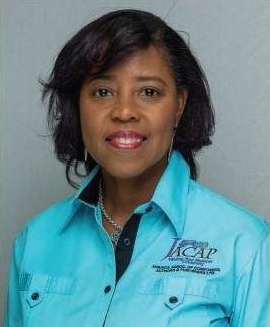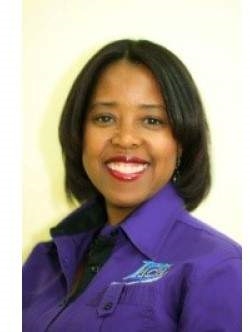After almost two years of entertainment hiatus, many Jamaicans are suffering from cabin fever and welcome any little reprieve, any opportunity to “do road” and to party.

In contravention of the provisions of the Disaster Risk Management Act (DRMA) and its restrictions on gatherings, from uptown to downtown to midtown, ‘party still a keep’. While you rock to the rhythm or ‘buss’ di latest dance in your ‘wicked’ outfit, do you ever wonder what goes into making the music which is the lifeblood of the party?
Every piece of music, from jazz to R&B, soca, opera, reggae, and dancehall began as a creative idea in the head of an individual or as the creative expression of a group of people. The created music is the property of an individual or a group and is therefore protected by global copyright laws. Even in the case of traditional folk music, recorded versions are copyright-protected.
Copyright is the means by which creators benefit from the work they have created. Through copyright creators receive financial reward for their efforts and recognition of the importance of their intellectual property.
The Copyright Act of Jamaica, (last revised 2015), establishes the legal framework and sets out the legal rights for intellectual activity in the literary, artistic, industrial, and scientific fields. It protects the creators and the intellectual property holders by granting them a limited monopoly to control the use of their property.
The Act gives copyright owners the right to authorize or prohibit reproduction, distribution, public performance broadcast, and adaptation of their works. So, if you are engaged in any activity which uses music protected under copyright without the permission of the copyright holder or a license from one of the rights management agencies, you are in breach of the laws and have infringed the rights of the copyright holder.

Infringement of copyright is similar to theft of tangible property. The copyright owners are weeping and not reaping, while the promoters of illegal parties are raking in earnings from music they did not create.
The days of the struggling artist who engaged in music or other pursuits just for the sake of it — art for art’s sake — are long gone. People must be properly compensated for their intellectual property. Most times the performer of a piece of music is the known factor, and the average person gives scant regard to the writers, composers, and arrangers. But, think about it, without the created work what would the performer perform and the DJ play?
To ensure the protection of the rights to their intellectual property and to ensure that they receive just financial benefits, creators of musical works assign their rights to collective management organizations (CMOs) or licensing bodies such as the Jamaica Association of Composers, Authors, and Publishers (JACAP), the Jamaica Music Society (JAMMS) and the Jamaican Copyright Licensing Agency (JAMCOPY). These bodies grant licenses on their behalf to users of their property in adherence to the provisions of the Copyright Act of Jamaica.

JACAP is a non-profit membership CMO established in 1998, which administrates the public performance, the mechanical (reproductive) rights, and synchronization rights of lyricists (authors), music composers, and music publishers here in Jamaica. JACAP collects license fees from music users and distributes the money as royalties to writers and publishers of music.
Every promoter will tell you that “man have to eat a food”. The truth is, if a party or similar gathering is being held illegally, the CMO cannot issue a license. Promoters who want to legally stage events are hurting, while the illegal party promoters use very creative means to circumvent the system, lining their pockets in the process. The trickle-down effect is that the copyright owners cannot benefit. In other words, “everybody a rock, but the copyright holders pocket get knock.”
In addition to the illegality of the parties, the gatherings, with abundant evidence of weak adherence to mask-wearing and other COVID-19 protocols, serve to drive up the positivity rate. That coupled with the country’s low vaccination levels is cause for concern because, for the sake of enjoyment, people put others at risk and behave as if they forget that we are in the midst of a pandemic.

With these major challenges, what then is the fix? How do we balance between people’s need for economic survival and the law? Precedent has been set by other countries with vibrant entertainment and creative industries, where structured plans and support for the stakeholders have been put in place to facilitate the reopening of those sectors. While we applaud the Ministry of Culture, Gender, Entertainment and Sport for its recent COVID grant to members of the entertainment industry, much more needs to be done to rev up the engine of the industry.
For JACAP, the solution lies in the development of appropriate strategies to open the industry to further economic earnings for music users and owners. The protocols established for the reopening of the hospitality industry can be used as a guide to establish a framework for the entertainment and creative sectors. Jamaica’s vibrant cultural and creative industry must be given priority, and industry development must be at the forefront of any cultural policy. The time for us to act is now.

JACAP is also recommending amendments to the Copyright Act to include non-exclusive agreements to give creators the same rights and powers as those granted under exclusive agreements. This will bring the Copyright Act into the digital age, thus allowing creators to diversify their portfolio by issuing non-exclusive agreements, earning more income from different sources and enabling third parties to act on their behalf using this format of agreement.
Lydia Rose is the general manager of the Jamaican collective management organization, Jamaica Association of Composers, Authors and Publishers (JACAP) , which administers the rights of the composers, authors, and publishers of musical works, both local and international in Jamaica. She is currently chair for the management committee of the Association of Caribbean Copyright Societies (ACCS), an organization formed by the four major rights management societies in the Caribbean — Barbados, Trinidad & Tobago, Jamaica, and St Lucia. Rose holds an MBA in international business and a BSc Management & Accounting (hons) from The University of the West Indies.


You must log in to post a comment.